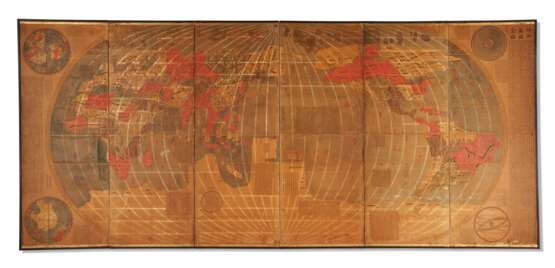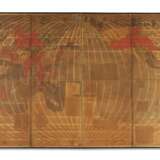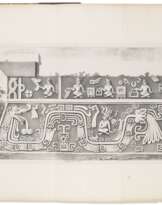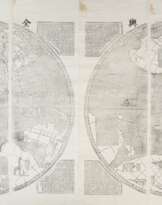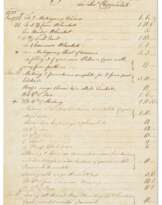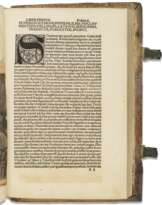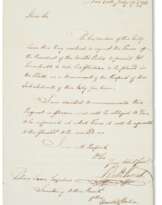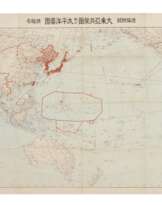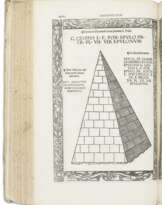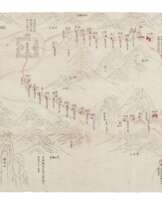ID 627562
Lot 72 | Ricci world map on a Japanese screen
Estimate value
$ 60 000 – 90 000
An early manuscript copy of Ricci's monumental wall map: the first map to combine Eastern and Western cartography, executed by a skilled Japanese copyist. Ricci's map was originally printed in 1602 at the Jesuit Mission at Beijing, which Ricci had founded with Father Ruggieri. Ricci made several printed Chinese wall maps at the request of the governor of the province, and later the Emperor after the mission had been moved to Nanjing. No copies of the earliest version of Ricci's map survive, and of the 1602 version that made him famous, only 7 copies printed before 1644 are located (3 printed after that date are known). The tradition of making manuscript copies began almost immediately after its printing. Japanese copies such as this reveal the importance of the map in opening up Japan's geographical understanding of the world, and were especially prized during the Edo period from 1639 to 1853 when Japan was isolated from outside influences. Because Ricci was known as Li Madou, many Japanese believed him to be Chinese and therefore his map was not banned as other Western maps were. Many copies of Ricci's map are greatly distorted from the original, whereas the present example very faithfully reflects the map's original look, both in the geographical details and in the textual transcriptions. All early copies of Ricci's map are rare, with few appearing on the market, and those that have clearly indicating a much later date of production than the present. Ricci's projection closely followed Abraham Ortelius's 'Typus Orbis Terrarum,' but reoriented the map to place China towards the center of the map "to reflect the Chinese notion of their place in the world as the 'Middle Kingdom.' This arrangement sets America on the eastern borders of the map, a fact which was later to confuse the Japanese who saw America as one of the 'western countries' (Jones, Nelson and Wallis). Other sources, such as the world maps of Gerard Mercator and Pieter Plancius, are evident. The printed map has been called "the impossible 'black tulip'" by Robinson, and manuscript copies are nearly as elusive. The survival of any wall map of this size is extremely rare, especially when combined with the fragility of the paper used, the remoteness of the country of origin and the numerous political challenges the Ricci map has faced since its creation. Another extant copy of the map is in the Kano Collection, Tohoku University Library (Japan). References: John Day, “The Search for the Origins of the Chinese Manuscript of Matteo Ricci's Maps,” Imago Mundi, Vol. 47 (1995), pp. 94-117; John Day, “The Voretzsch/Howell Ricci Map, a peculiar puzzle,” The Map Collector, no. 72 (Autumn 1995); Jones, Nelson and Wallis, Chinese and Japanese Maps (1974); Kazutaka Unno et al., Nihon Kochizu Taisei Sekaizu-hen [The World in Japanese Maps until the Mid-19th Century] (1975); Kazutaka Unno, “Seiyo Chikyusetus no Denran [Introduction of the Global Theory to Japan],” Shizen 34 no. 3 (1979); Nanba, Muroga and Unno, Old Maps in Japan (1973); Donald Bernard, The Life and Times of John Manjiro (1992); Shusaku Endo, The Samurai (1984); Pasquale D'Elia, Il mappamondo di cinese dell F. Matteo Ricci, S. J. (1938); Pasquale D'Elia, “Letter to E. A. Voretzsch” (15 Oct 1954); Pasquale D'Elia, “Recent Discoveries and New Studies (1938-1960) on the World Map in Chinese of Father Matteo Ricci, S.J.” Monumenta Serica 20, pp 82-164 (1961); David Woodward and J.B. Harley, The History of Cartography, Volume 2, Book 2 (1994); P. Robinson, “Phillipps 1986: The Chinese Puzzle,” The Book Collector, Summer (1976), pp.170-194.
Large manuscript map of the world, ink and colors on Japanese paper, approximately 1710 x 3900 mm overall. The map following the exact form of Ricci, with some geographical names and texts in Japanese Katakana. Mounted on a 19th-century screen, with ½-in. gilt-paper border along top and bottom, the byobu (screen), within a wooden frame, was produced in Japan in the 17th century. (Toned, white latitude and longitude lines faded, lower portion of panels 5 and 6 with some surface abrasions and tears, other small areas of wear, mainly to the uppermost and lowermost portions of the sheets, old retouching in several areas.) Provenance: Dr. Ernst Arthur Voretzsch (1868-1965) – Schloss Colmberg, from 1928 to 1933 the German Ambassador to Japan – Hauswedell & Nolte (Hamburg), 16 June 1955, lot 270 – purchased by John Howell and sold to James R. Campbell – Christie’s New York, Jun 23, 2011, lot 194.
Exhibited: “The World on Paper: From Square to Sphericity,” Hong Kong Maritime Museum, December 2019 to March 2020.
Christie's thanks John D. Day for his assistance in cataloguing this lot.
Please note that this lot is subject to an import tariff. If the buyer instructs Christie’s to arrange shipping of the lot to a foreign address, the buyer will not be required to pay the import tariff. If the buyer instructs Christie’s to arrange shipping of the lot to a domestic address, if the buyer collects the property in person, or if the buyer arranges their own shipping (whether domestically or internationally), the buyer will be required to pay the import tariff. Please contact Post Sale Services on +1 212 636 2650 prior to bidding for more information.
| Artist: | William Shakespeare (1564 - 1616) |
|---|---|
| Applied technique: | Pencil |
| Artist: | William Shakespeare (1564 - 1616) |
|---|---|
| Applied technique: | Pencil |
| Address of auction |
CHRISTIE'S 8 King Street, St. James's SW1Y 6QT London United Kingdom | |
|---|---|---|
| Preview |
| |
| Phone | +44 (0)20 7839 9060 | |
| Buyer Premium | see on Website | |
| Conditions of purchase | Conditions of purchase |
